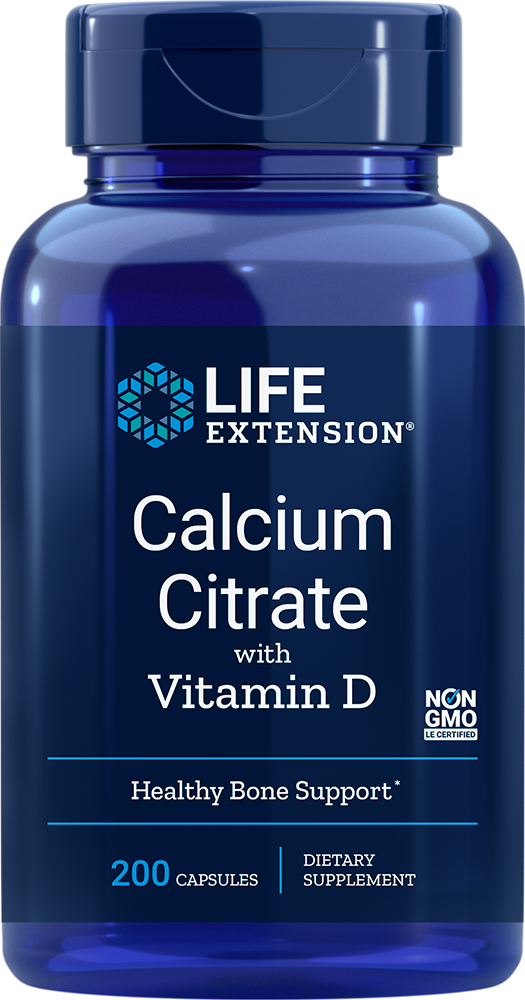Passwords are case sensitive
Calcium Citrate with Vitamin D, 200 capsules
Return to Bone HealthCalcium is the most abundant mineral in the body and is primarily found in the bones and teeth. In bone formation, calcium forms crystals that provide strength to maturing bone.
For more than bones
Calcium supports more than just healthy bones. It’s also important for muscle contraction, blood vessel contraction and expansion, secretion of hormones and enzymes, and sending messages through the nervous system.1 A meta-analysis of 40 clinical trials demonstrated a significant impact on already-healthy blood pressure as a result of increased calcium intake by an average 1,200 mg/day.2 In addition, scientific research suggests that increased intake of calcium may help maintain healthy weight as well.3,4
Calcium is an essential mineral that is often inadequately supplied, inefficiently absorbed or excreted faster than it is assimilated.5 The citrate salt of calcium has been shown to be well absorbed and utilized by the body.6 This is the form many doctors and nutritionists recommend.
Calcium citrate dissolves easily, even if one doesn’t have ample stomach acid. As many people naturally produce less acid as they age, calcium citrate is a good choice for older adults.1,7 The addition of vitamin D3 encourages calcium absorption and promotes healthy bone density. However, as people age, they often lose the ability to make vitamin D3.8
Non-GMO |
||||||||||
| Dosage and Use | ||||||||||
|
||||||||||
Dosage and Use Take one (1) capsule, one to four times daily with food, or as recommended by a healthcare practitioner. Scientific studies suggest calcium supplementation in divided doses with food in the morning and evening may yield the best results.
Super-absorbable calcium
$28.00
01963

